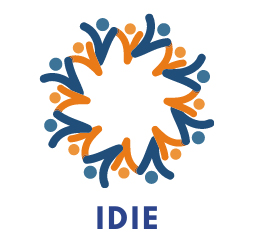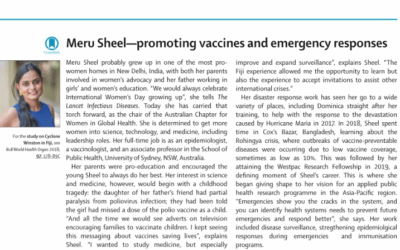A/Prof Meru Sheel, Cyra Patel, and Dr Gemma Saravanos travelled to Vientiane to present the findings from an Evaluation of the Lao Electronic Immunisation Register to the Lao Government, Ministry of Health and the National Immunisation Programme.
This was a multi-component study consisting of document review, health care worker surveys, key informant interviews and data quality assessments to bring together evidence and recommendations to strengthen and improve the electronic immunisation register (EIR) and close equity gaps.
The study found high levels of support among healthcare workers (HCWs) and decision-makers, with all surveyed HCWs expressing satisfaction. They praised the system for being user-friendly and providing easy access to useful data. Interviewees discussed how the electronic system was much more convenient than the paper-based system and made it much easier to access vaccination information. They emphasised the importance of using the EIR to be able to achieve health benefits like improvements in immunisation coverage.
The study also identified some challenges to using the EIR. Some records showed missing or inaccurate details, particularly in areas with poor internet connectivity. Additionally, many HCWs felt that more training is needed to fully harness the EIR for decision-making and improve vaccine uptake. Some also noted an increase in workload, likely due to duplicated reporting processes during the transition from paper records to the EIR system. The long-term sustainability of EIRs will depend on better planning and gradually transferring responsibility from external partners to local governments.
Our study identified the following recommendations to strengthen the operation and sustainability of the EIR:
- Develop and implement a timebound plan with clear roles and responsibilities for the operation and maintenance of the EIR in the MoH
- Develop a multi-phase and multi-stakeholder plan to guide transition to an electronic-based immunisation data system
- Explore EIR system capabilities to include real-time data validity checks to reduce risk of data entry errors
- Strengthen the capability of the workforce to use data from the EIR
- Strengthen EIR data quality improvement processes
- Estimate ongoing costs of the EIR and include in overall planning and budgeting, planning for transition from external to domestic financing
All recommendations were endorsed by the stakeholders.
This study was done in collaboration and partnership with the Maternal Child Health Centre at the Ministry of Health, World Health Organization Country Office, UNICEF Country Office, and Clinton Health Access Initiative in Lao PDR. This study was funded by the Australian Department of Foreign Affairs and Trade as part of the Australian Regional Immunisation Alliance.





